What are we waiting for? The need for stronger international nuclear energy relationships.
By James O. Ellis, Jr., Sonja D. Schmid | March 11, 2021

Editor’s note: This article is part of a collection of expert commentary on nuclear safety published on the tenth anniversary of the Fukushima disaster, produced in a collaboration between the Project on Managing the Atom at Harvard Kennedy School and the Bulletin.
In the weeks after the Fukushima disaster, the then-CEO of the Institute of Nuclear Power Operations (and one of the authors) made a passionate call for the creation of “a robust, highly capable response team with pre-staged equipment interoperable both domestically and internationally.” In the decade since, the nuclear industry and those who regulate it have come a long way in many countries but, arguably, still haven’t made sufficient progress in cultivating and codifying effective, trusting, and transparent international relationships.
After years of methodical analysis, hard work, and millions of dollars spent, the US industry has set up a system of nuclear emergency response under the moniker of SAFER/FLEX. The system has yet to be tested, but all indications are that the interoperable equipment, dedicated training, continuous maintenance, logistics planning, and regular exercises will enable an effective emergency response to any US nuclear power plant in distress. Using sometimes different approaches, other nations have also crafted new mitigation capabilities aligned with their own technologies, regulatory philosophies, and organizational structures.
What these nuclear emergency response initiatives represent is a powerful surge capacity for domestic incidents. But as yet, there have been few efforts to extend these capacities beyond individual nations. This is deeply counterintuitive, as both Chernobyl and Fukushima have clearly shown that the economic, ecological, societal, and human costs of significant nuclear events, as with global pandemics, do not respect human jurisdictions and national boundaries.
Furthermore, technical solutions, however elegant and impressive, are never enough. An important lesson from our experience with Fukushima has been the value of relationships, both those of long-standing, which were deepened and strengthened, and those that were created afresh. These ad hoc groups included nuclear plant operators and major supply and engineering firms, regulatory authority leadership and emergency support organizations, military leaders and diplomatic authorities. Each of these stakeholders brought specialized and necessary expertise, perspectives, skills, and resources that, in concert, provided essential aid to the Japanese and information and insight to us all. But the hard work of building, cultivating, and nurturing robust long-term, effective, and transparent relationships among individuals, groups, and organizations not only within, but across, nations still awaits, 10 years after Fukushima and 35 years after Chernobyl.
It is not enough to merely rewrite national plans, create industry working groups, and sign memoranda of agreement. What is needed is a coalition of the ready, willing, and able: ready to gird for the battle now, not at some future moving milestone; willing to act, not discuss, debate or delay; and able to bring real resources, drive real change, and demand real accountability.
Regardless of whether we envision nuclear energy as an essential part of a carbon-neutral future, accept it as a bridge to an imminent all-renewable era, or dread it as a looming environmental challenge, increasing the safety of currently operating reactors is in everyone’s best interest. It is imperative that we keep this goal in mind as we push for closer cooperation in nuclear emergency response across the globe.
Even as we refine and enhance our focus on strategies of prevention, we must balance that with an increased emphasis on effective response. Relationships forged over recent years, together with combined emergency response capabilities, must be formalized, supported, and exercised. As both Chernobyl and Fukushima have demonstrated, the global nuclear community is highly interconnected; our challenge is to enhance and advance these connections as an international alliance. We must not dismiss Chernobyl and Fukushima as long-ago events in far-away places; the lessons are both real and still immediate for all of us. With national emergency response forces solidly in place, we are now well positioned to advance a global agenda, which is to improve the industry we have and to shape the industry we want. What are we waiting for?
Read more expert commentaries in this collection »
Together, we make the world safer.
The Bulletin elevates expert voices above the noise. But as an independent nonprofit organization, our operations depend on the support of readers like you. Help us continue to deliver quality journalism that holds leaders accountable. Your support of our work at any level is important. In return, we promise our coverage will be understandable, influential, vigilant, solution-oriented, and fair-minded. Together we can make a difference.
Keywords: Chernobyl, Fukushima, fukushima10, international cooperation
Topics: Nuclear Energy, Nuclear Risk




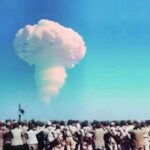

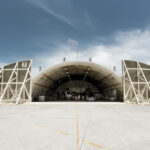
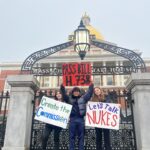
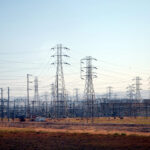

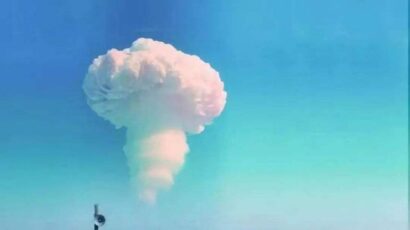
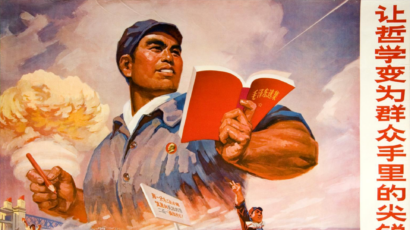
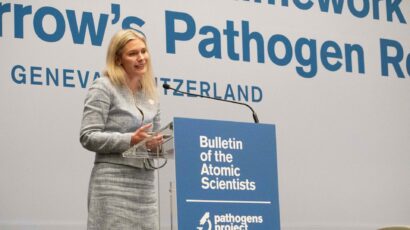
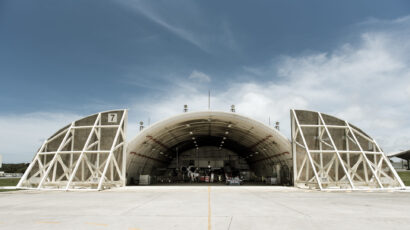


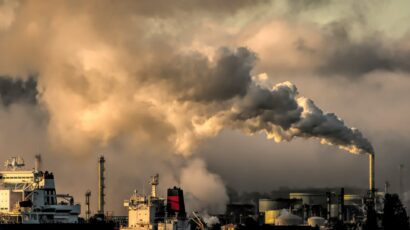
As long as the so called regulators remain captured by the industry they are suppose to regulate, safety will not improve.